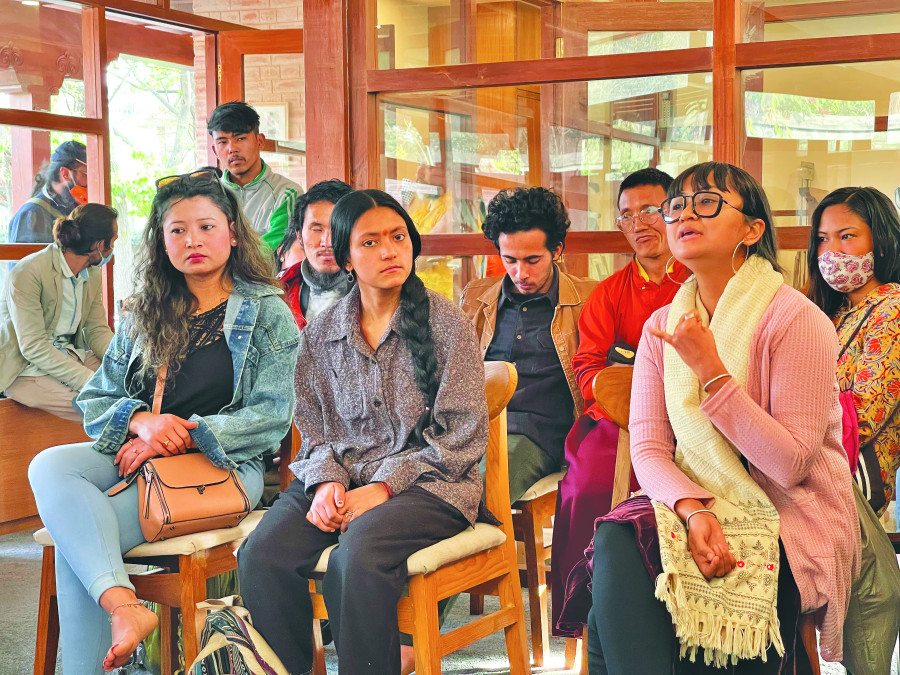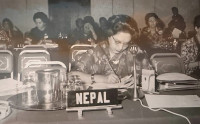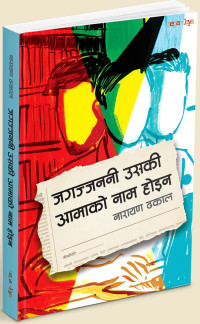Culture & Lifestyle
How this group of filmmakers is trying to involve more women in filmmaking
With more than 200 members, Nepali Female Filmmakers, a group of passionate filmmakers, is providing a safe and supporting environment for upcoming female filmmakers in Nepal.
Ankit Khadgi
When filmmaker Shanta Nepali started making films, she realised that there was a dearth of women involvement in filmmaking in Nepal.
“I used to work as a line producer for many international projects,” says Nepali, who runs her own production house, the Shanta Nepali Productions. “Sometimes, I was involved in projects that required female technicians, but finding even one was tough."
And this bothered Nepali.
“When I started to work as a filmmaker, I couldn’t find a woman working in films who could be a guide or role model, someone who could inspire me. I think this is the main reason why many inspiring female filmmakers of my generation couldn’t continue filmmaking even if they had a passion to work, as they didn’t have anyone to look up to,” says Nepali.
But a major concern Nepali had was the impact this scarcity would have on the upcoming generation. As the Nepali cinema industry lacks films led by women and only a few are working in departments like direction, writing, light, sound, editing and others, she knew how difficult it could be for the upcoming generation of female storytellers to continue working, especially in an environment that was mostly dominated by men.
And that’s why, to provide a safe and supporting environment for the upcoming generation of female filmmakers, through which they could learn about filmmaking and help each other to pursue their passion for telling stories, Nepali, along with a few other filmmakers, formed a group called Nepali Female Filmmakers in 2019.
“Although filmmaker itself is a gender-neutral word, we consciously used the word ‘female filmmaker’ for our group. Being aware of the realities of women in the film industry, we felt the need to distinguish ourselves,” says Nepali.
When they started out, the group was just limited to Facebook. All they wanted to do was to help each other through various possible mediums. Neither were they certain about the scope and the future of the group nor about how they could help other aspiring female filmmakers. But it was something the members felt they had to do.
“In Nepal, if you are a female filmmaker, you need to work double than your male counterparts just to prove yourself. Plus there are times when people don’t take us seriously and do not have faith in our talent and craft,” says Prasuna Dongol, a filmmaker, and one of the initial members of the group.
Dongol too in the earlier days of her career had to experience a lot of struggle to find work, due to the lack of a strong community and group in the industry, she says. “When I came back to Nepal after completing my studies in film and media from the UK, I had to struggle to get work. In our industry, if you want to work, you can easily get work only if you know someone from within or if you are well-established,” says Dongol, an award-winning filmmaker.
And for the group members, this was a major factor in starting and continuing their initiative in the long run, as they wanted to create an environment for aspiring female filmmakers to thrive and get work so they can be inspired to work more.
“The gap in mainstream cinema in Nepal is so wide that for those women who are interested in filmmaking, it’s difficult to know where to find jobs, whom to approach and expand one’s network. And due to the lack of such information, many are demotivated to work, as they are unable to find jobs in films,” says Nepali.
To keep such problems at bay, the group then started sharing any opportunity they found with each other—from grants to even work opportunities. Likewise, they also started even sharing their ideas, scripts, and stories, providing each other various valuable suggestions.
However, according to the members, it was during the lockdown that they realised that they needed to work efficiently, so more inspiring female filmmakers could get equal space, they say.
“The lockdown gave us time to think. Previously, there was no community for us [female filmmakers] where we could just share our experiences and feelings. But after forming Nepali Female Filmmakers, I have realised how such groups are important especially for filmmakers like us who have to work in a patriarchal structure,” says Rajeela Shrestha, a filmmaker, and a member of the group.
Currently, there are more than 200 members in the group, consisting of diverse storytellers from all corners of the country. Likewise, two weeks ago, along with Biratnagar Film Workshop and Sustainable Himalayan Foundation, the group also provided a grant of Rs25,000 to two aspiring filmmakers.
On the other hand, the group had also organised masterclasses with filmmakers like Deepak Rauniyar, Marta Mateus, and others, with a motive of helping aspiring filmmakers to learn and improve their filmmaking skills as well as various screenings of each other’s projects, so the filmmakers can meet each other and build their networks.
Since its arrival, cinema has largely been a man’s medium. From direction to scriptwriting to lights to editing, most of the departments—whether it be in Hollywood, Bollywood or even in our film industry—are led by men, due to which the voices and perspectives of women do not find sufficient space.
Although the members are just starting out with their initiative of helping each other both creatively and personally, most of the members are driven by a common motive: to create a safe and fair playing field where women also get equal opportunity to tell their own stories so there’s an authentic portrayal of women in the media.
“If you look at the portrayal of women in Nepali films, they are just limited to the roles of a girlfriend, mother, wife or daughter-in-law of the heroes. There’s hardly any inspiring female character in Nepal films and this is because, since the beginning, it’s mostly men who have been involved in films, shaping the narrative of how a woman should be,” says Nepali.
“Every person has a different experience. However, the best person to tell a woman’s story is a woman, someone who has lived the experience. And that’s why we need more women in filmmaking so they can tell their own stories,” she adds.
For members of the group, who otherwise rarely receive the opportunity to work with other women in films, the solidarity and the support they are receiving from each other is both emotionally and intellectually fulfilling for them.
“Before we had no place where we could even share our concerns. However, Nepali Female Filmmakers has provided a space for us where we can talk about any issue, which we women who are involved in filmmaking have to face and can relate to each other and express ourselves in a much comfortable way,” says Shrestha.




 21.71°C Kathmandu
21.71°C Kathmandu















